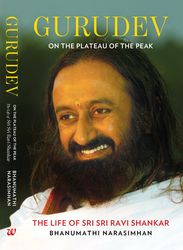My brother had a collection of five or six idols of gods and goddesses at home. They were his favourite toys. The outer corridors of large temples in South India housed little shops that sold typical temple-related goodies—shloka books, incense, flowers, puja items and idols. When we went to the Kumbeshwara temple in Kumbakonam, little Ravi spotted a graceful brass statue of Nataraja which he wanted to take home. It was quite big and Amma and Pitaji were at a loss as to how to convince their seven-year-old son against taking it. Luckily, the young boy spotted a smaller version of the same deity, which we decided to buy. At home, all the idols would be brought out carefully and placed in individual bowls, decorated with sandal paste and flowers, and set afloat on the kitchen tank, which would always be full with water. The temples have a ‘teppam’ ceremony where the deities are decorated and taken for a boat ride across the temple pond. We had our own little ‘teppam’ in our pond at home in Papanasam and the whole family would enjoy this endearing ritual.
The days that I spent with my brother were precious. Ponds, lakes or seas are all made up of water, yet they are different. As we grow older, everything seems to remain the same, but the quality of the consciousness of the enjoyer undergoes a sea change. When we were small, we used to go to Marina beach in Chennai and eat a typical snack of ‘thengaai maangaai pattaani chundal’—cut raw mangoes mixed with coconut pieces and boiled peas—and immerse our feet in the sea waves. But the way I look at the sea has changed. I enjoy great calmness watching the waves now. So many waves—small, big, soft and rough—just like thoughts in the mind. Sometimes they come as tidal waves, and when they recede, it is like meditating, going back to the source. What a life the Master has given me! I marvel at my own good fortune. The Master is like this magnificent sea, seemingly calm, yet full of dynamism.
***
Amma used to worry that her young son was meditating or speaking philosophically most of the time. Pitaji was the one to reassure her that everything would be fine. When my brother was about seven years of age, his Upanayanam, the sacred thread ceremony, was performed. This is a ceremony during which the highest knowledge of the Brahman—the self—is whispered into the ears of a child. The Gayatri mantra is bestowed with the blessing of invoking brilliance and truth in the intellect of a child. When my brother performed Sandhyavandana, he took about an hour and a half, while our cousins took only ten minutes. Even as a child, he was deeply sincere about honouring sacred traditions. Today, thousands from every part of the world come to the ashram and learn to perform the Sandhyavandana. Gurudev explains, ‘There are three states of consciousness—waking, dreaming and sleeping. At the junctures when one state ends and another state begins, something fantastic happens. You get a glimpse of that which is beyond the three. And that is the Divine. It is the basis of all creation. It removes all fears and gives a bigger dimension to life. This experience, transcending thought and emotions and going to another level of stillness, is called Sandhya. Vandana is adoring that inner state.’
People would advise Amma, ‘Do not allow your son to do so much puja; he won’t study properly’. So whenever he sat down to meditate, Amma would hurry him along. ‘Not over yet? You’re taking too long. Come on, hurry up! You have to study!’ Years later, looking at Gurudev’s busy tour schedule, Amma would say, ‘You are always in Hari (hurry) ... and I am in Shiva!’ Hari being the playful manifestation of divine energy and Shiva being stillness, the meditative aspect.
A few days after his thread ceremony, my brother went with his friends to learn swimming. A friend’s father was going to teach them. They found a large village well to practice. These wells tended to be several hundred feet deep. Most of his friends already knew a little bit about swimming. He listened to the instructions from the parent, and in a moment of absolute fearlessness, jumped headlong into the water. First, it was moist air that gushed past his face and within moments he was several feet below the surface. No air, no light, just water all around and a feeling of plunging deeper and deeper into an abyss. All other sensations were fading when suddenly the sacred thread pressed hard against his skin and a force pulled his body upward. When he became conscious again, he was in the safety of our home. His friend’s father had jumped in behind him, had barely managed to catch hold of his sacred thread, and pulled him out of the water. He was literally saved by a thread! My mother was beyond upset. Pitaji’s face was grave but relieved. He said he had expected something ominous as he had seen a bad phase associated with water in my brother’s horoscope. He had avoided going to any place with water bodies as far as he could but was happy that the phase was over now.
Excerpted with permission from Westland Publications Private Limited

Gurudev: On the Plateau of the Peak:
The Life of Sri Sri Ravi Shankar
By Bhanumathi Narasimhan
Published by Westland
Publications Private Limited
Price Rs 599; pages: 200





